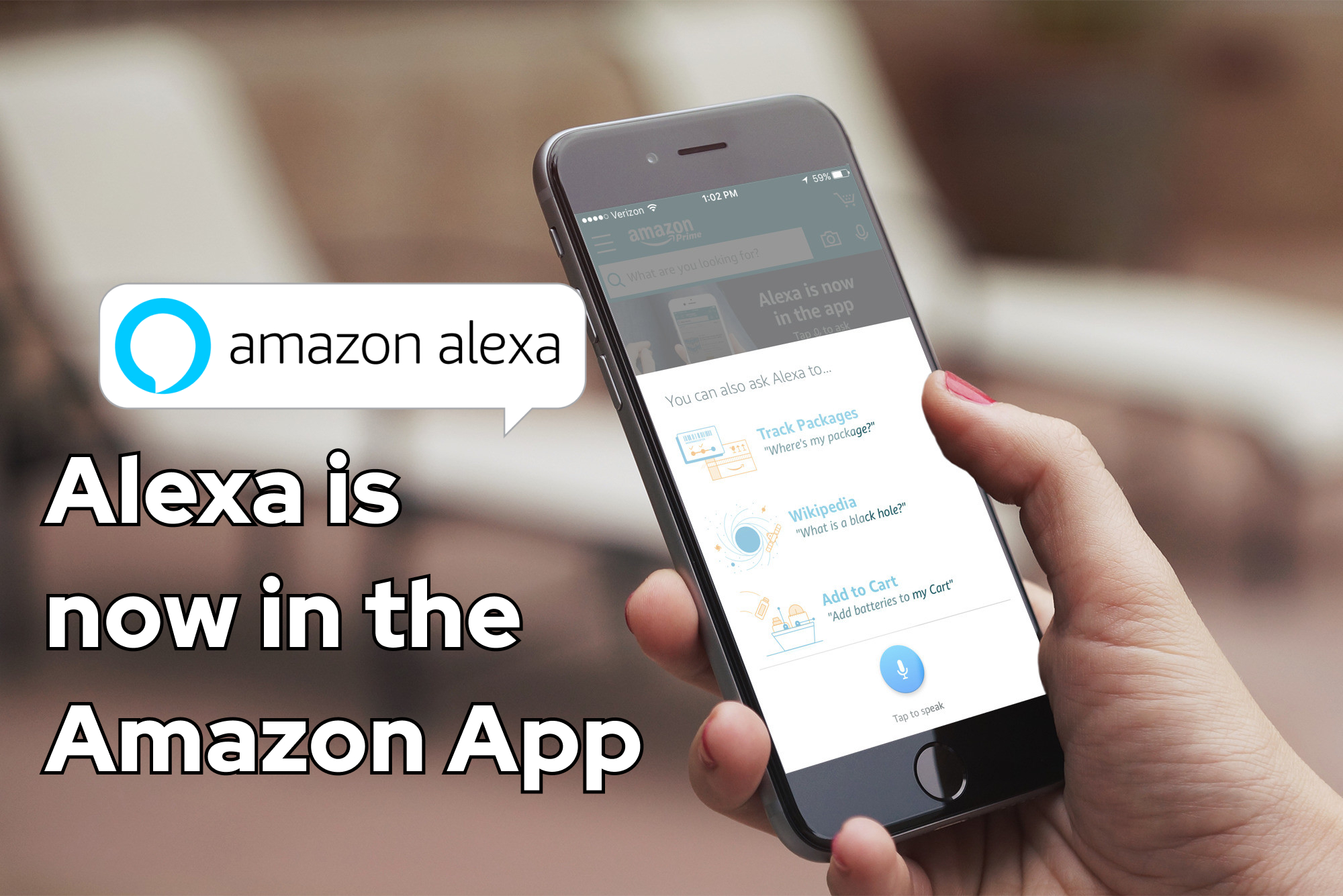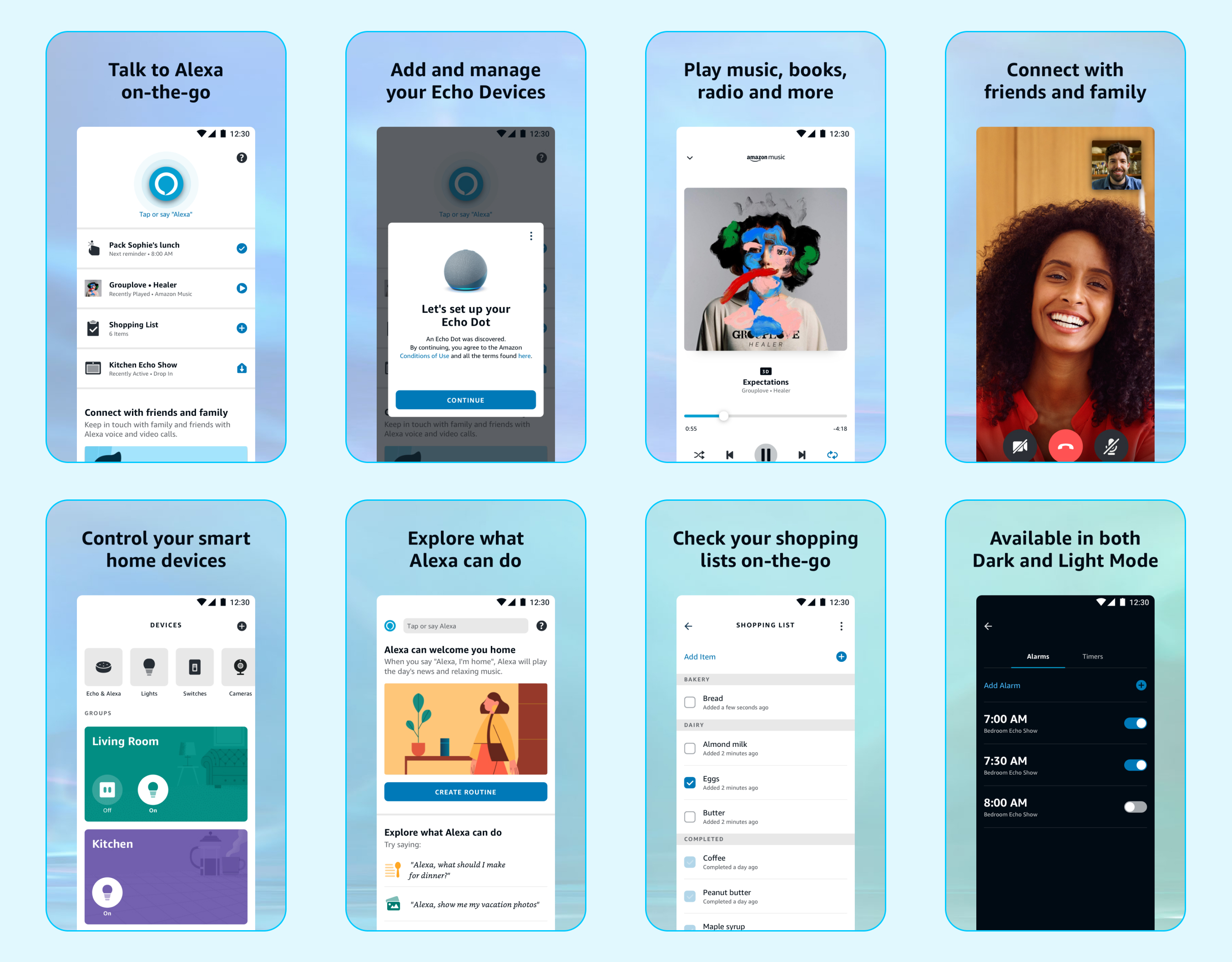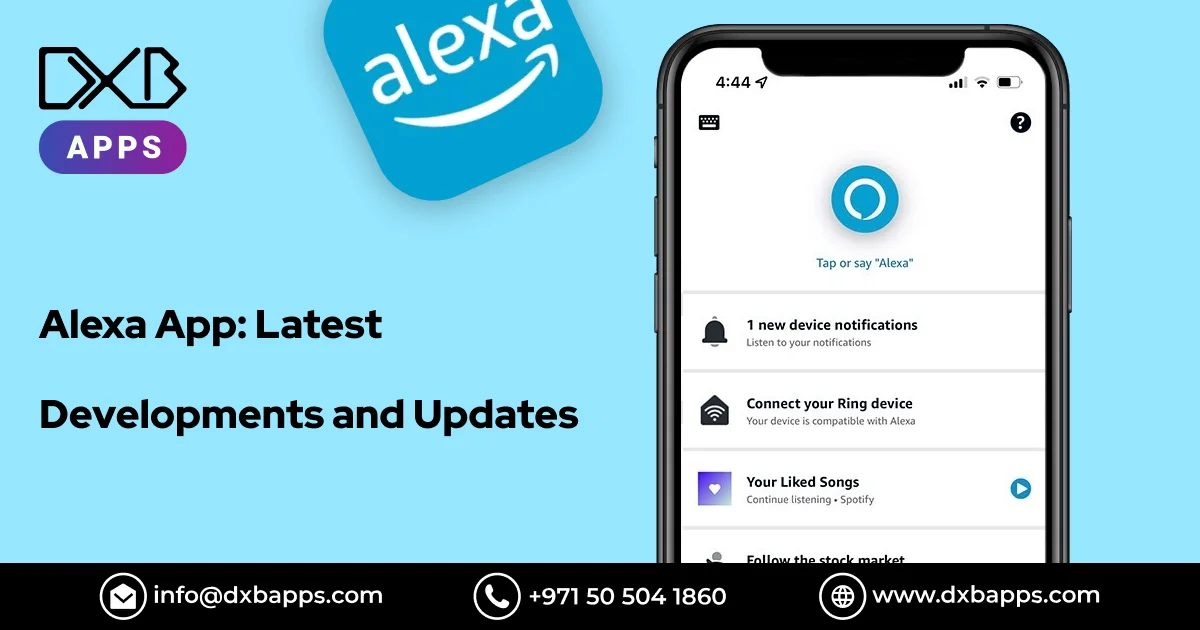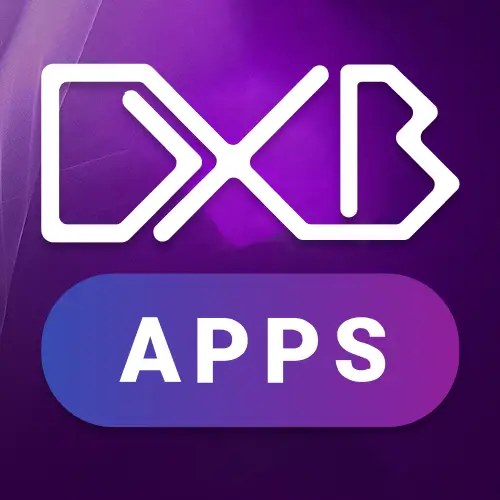Alexa similarly has been a part of the Amazon family of products for many years, and customers can easily interact with the voice assistant to manage all the smart home gadgets and playback music and alarms. Such change is unavoidable and bound to happen with time, and as the technology improves and styles up, something similar applies to Alexa More than a voice assistant, Alexa will be smarter, more intuitive, and powered by generative AI.
Generative AI changed the face of digital assistants, and Amazon has been working hard to make Alexa more capable by incorporating advanced AI technologies. This is a landmark shift toward generative AI and offers Alexa the capacity to do things beyond just answering commands to understand context, predict needs, and successfully complete tasks with increased reliability.
The potential was great, but the transition certainly was not smooth. Even though the Amazon Alexa app has learned to perform really complex tasks, Amazon has seen some technical hiccups during this phase. The phenomenon of AI "hallucinations" and others associated with making the experience very smooth for a user has put off some of the expected updates. This article will speak about Alexa's recent developments, go deeper into how generative AI is changing its capabilities, and see which direction this voice assistant platform will take in the future.
As we watch Alexa grow, we must not forget the other voice assistants, such as Google Assistant and Apple's Siri, which are also competing for space in the same arena. The competitive nature of this type of voice assistant is strategically important to generative AI, which will determine user behaviour with their devices in the future.
![]()
Generative AI And Alexa: A New Frontier
In 2023, Amazon quietly started rolling out these generative AI capabilities for Alexa. This would change the voice assistant from mainly being a tool meant to respond to commands into much more complex forms of AI agents that could act on new information. Alexa would no longer just recall preprogrammed answers but generate new responses built based on deep learning models. This can be an interesting approach so that Alexa will understand and generate natural language in a more human-like manner, with context and the nuances of what a user would want.
Generative AI is intended to make Alexa able to have even more meaningful and dynamic conversations. Instead of canned responses or information from a set database, generative AI equips the assistant with the ability to process and produce answers on the fly based on learned patterns and contextual information-even past interactions. The potential for more personalised and proactive interactions is immense.
However, challenges abound in making generative AI work in Alexa. According to Rohit Prasad, head of Amazon's Artificial General Intelligence (AGI) team, some of the biggest challenges involve minimising AI hallucinations or when the AI system "makes up" information or generates inaccurate responses. Hallucinations from Known issuers in AI systems built around big language models lead to problems, though, when people ask Alexa to do a thing like purchase something or to reach some service. Still, though, it would hallucinate that gets the wrong thing in the wrong amount in Alexa.
Amazon is seriously concerned about Alexa's scale, which has emerged as the most scaled in the world. There are now well above 500 million devices in use worldwide. At this level of usage, room for error is negligible, and users now expect voice assistants to do things nearly perfectly, accurately, and reliably.
However, with all this aside, Amazon continues its quest to further develop Alexa. It's also working on the technical challenges with latency and reliability to help Alexa overcome the issue and become a smarter assistant who can perform even more complex work. By 2025, Amazon plans to fully integrate generative AI into Alexa, so this assistant will be used not only to converse but as a task-oriented assistant who can make recommendations at the shop counter and control the whole smart home.

Statistics And Facts About Alexa's Popularity
Alexa app has revolutionised voice assistants, with millions of users across the globe and substantial adoption. Currently, in 2024, Alexa will be used in more than 500 million devices worldwide; its popularity is evident, and so is the increasing trend of voice assistants in the lives of all users. This massive adoption makes Alexa one of the market leaders in voice assistants, though competition is high, with Google Assistant and Apple's Siri fighting for a top spot in this ever-growing market.
Here are some interesting statistics about the popularity and usage of Alexa.
- Currently, Alexa is used in over 500 million devices, including the Amazon Echo speakers, smart televisions, and many home appliances.
- Alexa processes more than 2.5 billion voice requests daily. This is the huge scale at which Alexa goes through its daily usage and interaction with the users.
- The user satisfaction for Alexa is more than 90%. Investigations show that many of the users are content with Alexa for its ability to operate smart gadgets, play music, and offer information.
- According to Alexa statistics, 60% of its users access it daily. The high frequency of engagement further underlines the importance of Alexa in everyday life, whether it's entertainment, task completion, or smart home control.
These numbers speak to Alexa's success as a voice assistant but downplay the fact that Amazon has really invested much into its platform. Despite challenges by other tech giants, Amazon's Alexa still stands tall as the pacesetter in most smart assistants; this is due to the device's abundant integration into the Amazon ecosystem and the general scaling up to many devices.
Challenges In Alexa's Development: Tackling Hallucinations And Latency Issues
Amazon has faced new challenges through the integration of generative AI in Alexa, but the most serious of these problems is AI "hallucinations," a term that describes scenarios where AI develops nonsensical, incorrect, or misleading information. Even though this problem is not unique to Alexa, applying it to an assistant interacting with real-world data to make purchases or set appointments is pretty scary.
Another challenge is latency or delay in the processing of requests. With Alexa now on the way to becoming a much more profound artificial intelligence, it must be capable of responding to requests that are more and more complicated in real-time and with as little delay as possible. For example, if a person is in a position to command Alexa to wake up and get groceries, check the current weather, and remind him/her of appointments and other extras it must execute these tasks without complications. If the responsiveness lags, the user experience can get frustrating.
This means reliability in developing trust with users, so for Alexa to be of true help, she must deliver accurate and timely responses. In this regard, Amazon is implementing some improvements that address the two issues, namely reducing processing time and enhancing the accuracy of Alexa's generative AI.
The addition of third-party services and apps brings a further dimension of complexity that detracts from the dependability of tasks completed through Alexa. Third-party applications range from home control devices to streaming entertainment platforms and may run in their hundreds; they must, together, provide the support that would deliver the promise to users when employing the capabilities that Alexa possesses in such areas as delivering tasks of reasonable complexity. More depends on developing these complex scales in the subsequent scale.
"Generative AI presents an enormous opportunity for us to make Alexa even more wonderful for our customers, and we are actively working towards turning Alexa into yet more proactive and capable assistance, now already integrated with over half a billion devices installed in houses across the globe.”

New Alexa App Features
Despite the setbacks Alexa has faced with regard to its development, Amazon has taken considerable strides through a number of new features, which are aimed at improving the user experience. The most important area in which Alexa has improved is the management of smart home devices. From lights and thermostats to security systems and appliances, the Alexa app is slowly but surely becoming the central hub from which everything works. Amazon hopes one of the ways it will make Alexa the preferred assistant for home automation is by making Alexa available with more smart home devices.
Among some of the most important new features and updates of the Alexa app are:
Alexa App Setup:
Amazon has worked to simplify the process of setting up Alexa on various devices. This means users can easily link Alexa with their smart home systems, whether they are new to smart home technology or experienced users looking to expand the Alexa app setup.
Alexa for Echo Dot and Other Devices:
The firm is perfecting Alexa's abilities for the Alexa app for Echo Dot and similar devices to allow people to easily control their homes. Similarly, Alexa for the Echo Show and Echo Flex have been optimised to give users more control and freedom.
Alexa for Android and iOS:
Alexa improved her application on both Android and iOS to be more user-friendly on these mobile platforms. In the Alexa app for Android, it should take less time to set up a new smart device or ask Alexa a question.
Personalisation Features:
Alexa now offers more personalisation based on the user's preferences. For example, Alexa can suggest things based on past interactions or alter its response based on individual user behaviour.
All these features reflect Amazon's commitment to continually improving the user experience, access, and efficiency of Alexa. Generative AI seems to integrate perfectly with improvement, as Alexa can now respond proactively and more dynamically.
How Is Alexa Different From the Competition?
Although Alexa is still in the lead of the voice assistant race, she now has stiff competitors: Google Assistant and Apple's Siri. Other tech giants are also integrating generative AI in their products, which only heightens the bar on which one is the best voice assistant. However, Alexa has some exclusive advantages, particularly related to her capabilities and integration with the Amazon ecosystem.
Here is how Alexa stands out:
Amazon Ecosystem Integration:
Alexa is deeply integrated into the Amazon ecosystem, enabling customers to control any Amazon device, make a purchase, or access an Amazon service with ease. This integration makes Alexa stand out from its competitors.
Smart Home Control:
Alexa can interact with many smart home devices and to this day, Amazon is opening up new possibilities of devices that Alexa can control. Customers can coordinate their assignments, switch on the light, regulate the temperatures, and do much more- all by using the Alexa app.
Generative AI Integration:
Amazon is making Alexa smarter by integrating generative AI, which allows it to do things more efficiently and give more accurate responses.
Wide Range of Compatible Devices:
Alexa can be supported by a wide range of devices, from smart speakers to thermostats and even televisions. Its ability to blend into so many devices makes it one of the top assistants for assembling a smart home.
DXB APPS Builds The Best Mobile Apps Using The Latest Cutting-Edge Technologies
DXB APPS is one of the companies that are creating innovative mobile applications of very high quality while using the most recent and cutting-edge technologies to bring intuitive experiences into users' hands. DXB APPS is one of the leading companies that offer services for businesses who have the desire to begin the Mobile App Development Dubai process. We as the best Mobile App Development Agency, offer smart integration solutions and even e-commerce applications or AI features such as Alexa.
Our developers are committed to creating apps that function and scale, ensuring they are future-proof. Whether the voice assistant app, a smart home application, or one of your customised solutions to suit your business, DXB APPS has all the skills and knowledge you'll need to bring your vision alive.
Conclusion
Because of the innovations in generative AI and Amazon's commitment to improving its voice assistant platform every day, the Alexa app is always getting better. Presently, though, it experiences problems ranging from AI hallucinations to on-device latency, which Amazon keeps nudging Alexa forward to become more intelligent, trustworthy, and adept at dealing with complex tasks. One of the most significant breakthroughs for Alexa about integration into generative communication will become even more fluid and intelligent once these technologies mature.
As Alexa evolves and improves, so will the voice assistants and the smart home. The potential that Alexa is able to personalise, proactively, and contextualise responses in the future may alter how we communicate with our devices and how the voice assistant might become further integrated into our lives.
Faqs
How do I configure the Alexa app on my Android?
To get started with the Alexa app download from either the App Store or Google Play Store, enter your Amazon account details, and proceed to sync the Alexa-enabled smart devices you own.
Does Alexa work on smart home devices?
Yes. Alexa can control a home, as it is compatible with most smart home devices, including lights, thermostats, locks, and home security systems, and can be controlled by voice.
What are new features that have been put icing onthe Alexa app?
Amazon is working on integrating more advanced features of generative AI, personalised, proactive responses, and improving integration with smart home and third-party apps.


















